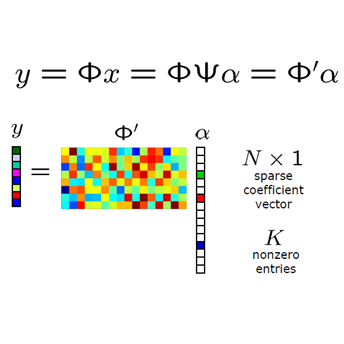Hyperspectral Imaging (HSI) is used in a wide range of applications such as remote sensing, yet the transmission of the HS images by communication data links becomes challenging due to the large number of spectral bands that the HS images contain together with the limited data bandwidth available in real applications. Compressive Sensing reduces the images by randomly subsampling the spectral bands of each spatial pixel and then it performs the image reconstruction of all the bands using recovery algorithms which impose sparsity in a certain transform domain. Since the image pixels are not strictly sparse, this work studies a data sparsification pre-processing stage prior to compression to ensure the sparsity of the pixels. The sparsified images are compressed $2.5\times$ and then recovered using the Generalized Orthogonal Matching Pursuit algorithm (gOMP) characterized by high accuracy, low computational requirements and fast convergence. The experiments are performed in five conventional hyperspectral images where the effect of different sparsification levels in the quality of the uncompressed as well as the recovered images is studied. It is concluded that the gOMP algorithm reconstructs the hyperspectral images with higher accuracy as well as faster convergence when the pixels are highly sparsified and hence at the expense of reducing the quality of the recovered images with respect to the original images.
翻译:暂无翻译



